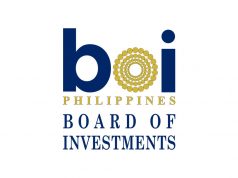BSP: PHL well-armed vs risk from Turkey
THE PHILIPPINES is well-armed with enough buffers to stay resilient to global shocks, the central bank chief said on Monday, amid fears that market turmoil over Turkey’s economic woes has begun to spill into emerging economies in Asia.
BSP Governor Nestor A. Espenilla, Jr. said the Philippine economy is unlikely to sustain a sharp blow from any contagion from Turkey, whose lira has been on a free fall since May.
Reuters reported on Monday that the lira plunged to a fresh record low amid chronic weakness in Turkey’s economy and an intensifying trade row with the United States. The risk is currently centered on European banks with exposure to Turkish foreign currency debt but could weigh on emerging markets as an asset class.
“The Philippine economy is quite resilient for several reasons. One is our fundamentals are very good. We’re growing strongly, the fiscal position is in order, the external position — despite the deficit — is moderate, and our indebtedness is low. So we’re in a strong fundamental position,” Mr. Espenilla told reporters.
The BSP chief also noted that the central bank sits on a “pretty high” level of dollar reserves, providing comfort that the economy has more than enough to get by in the event of any funding crunch.
Gross international reserves amounted to $76.892 billion in July, a six-year low but still enough to cover 7.4 months worth of import payments, according to latest available BSP data.
“Dynamic” policy response by way of tax reforms on the fiscal front — which will raise much-needed state revenues — as well as the fresh 50 basis-point rate hike from the BSP last week — in addition to two back-to-back 25 bp increases each in May and June — should help inspire confidence in the economy.
“For those three main reasons — fundamentals, sound policy, buffers — the Philippine economy is quite resilient to external factors. But that’s not to say that we won’t be affected by what’s going on outside,” Mr. Espenilla said.
“We will be affected, but we’d like to think the impact would be relatively moderate and manageable.”
In a report, economic research firm Natixis said emerging Asian economies like the Philippines can ride out any contagion.
“[W]e argue that they are in a strong position to absorb external shocks, as they have withstood the pressure of more discriminating capital much better than countries such as Turkey,” Natixis economists Trinh Nguyen and Gary Ng said, noting that the BSP has taken “decisive” steps to temper rising price pressures.
“Although emerging Asia is not immune, central banks in the region are certainly making it clear that they prioritize price stability by doing what’s necessary to instill investors’ confidence.”
ING Bank noted separately that the hawkish stance taken by the BSP, as reflected by last week’s interest rate hike that was the most aggressive in a decade, “moderates contagion” effects on the peso. — Melissa Luz T. Lopez



